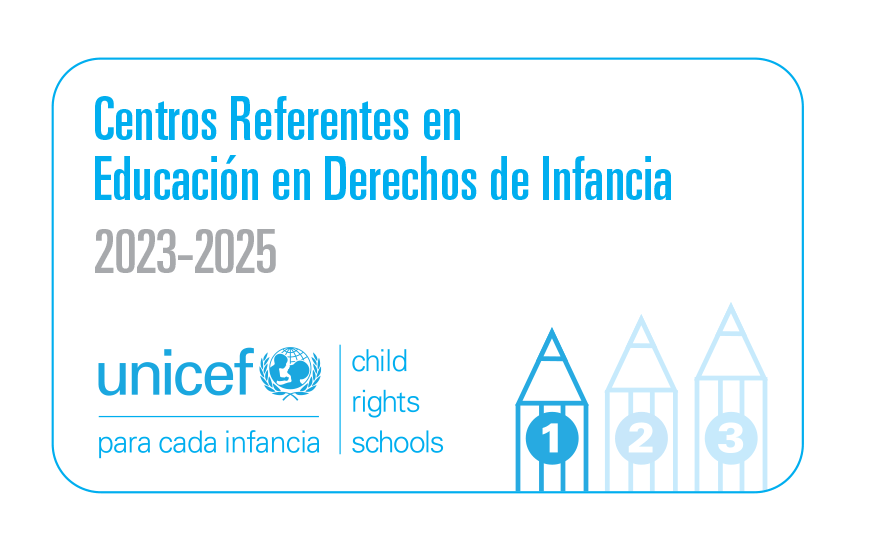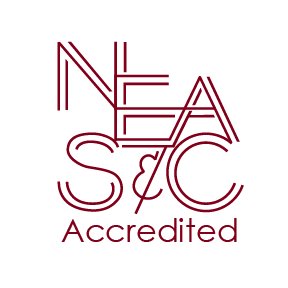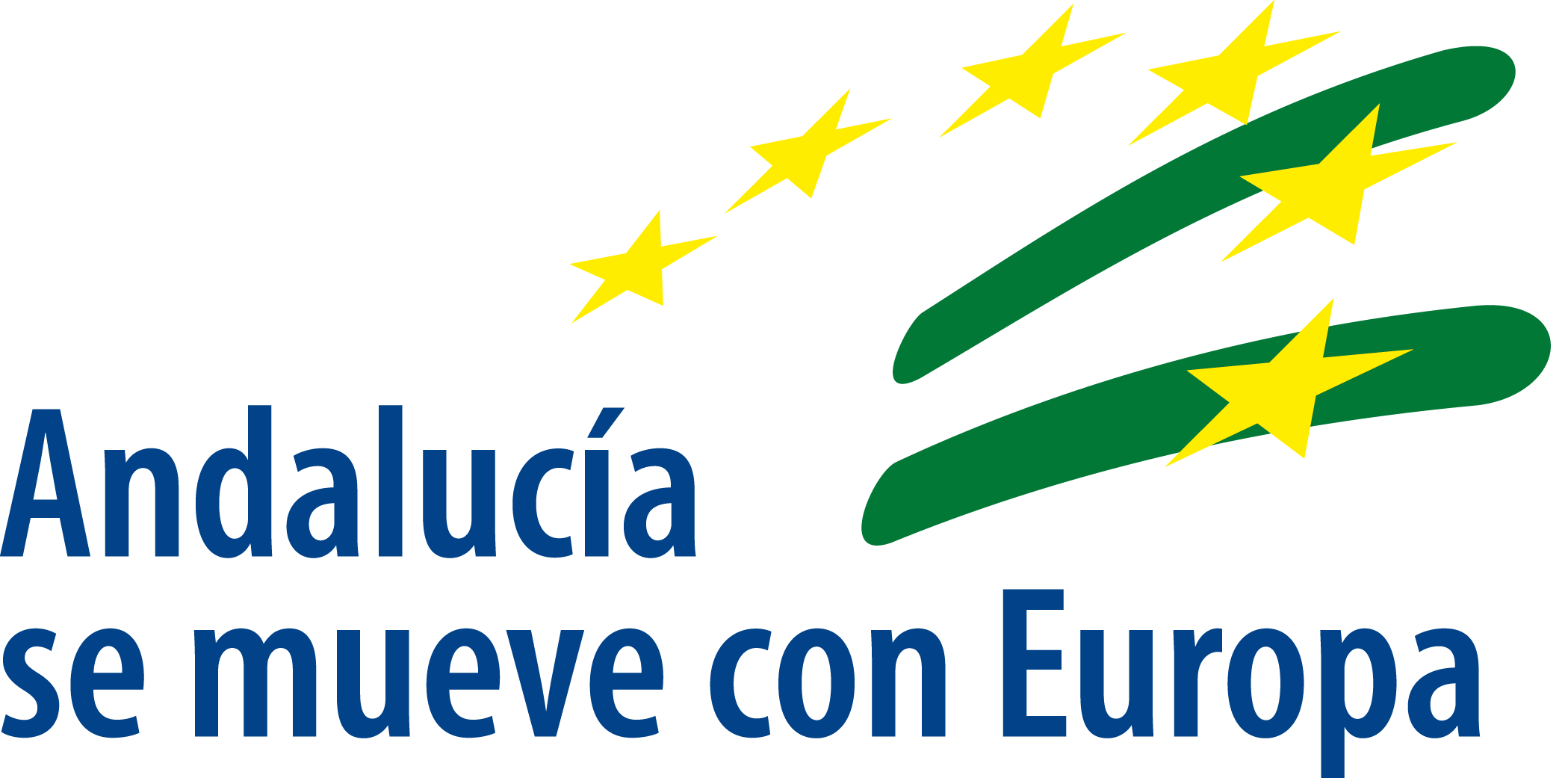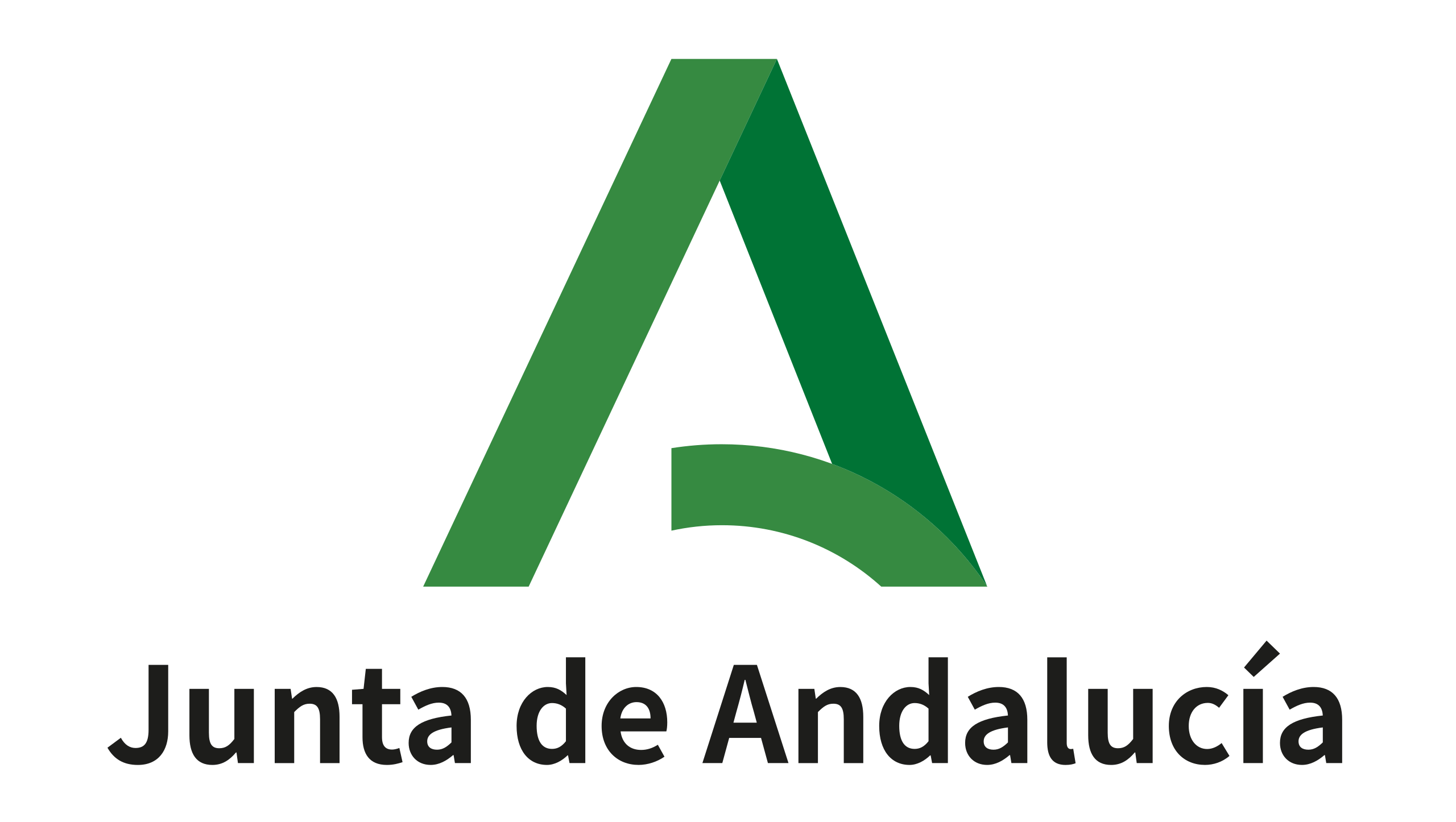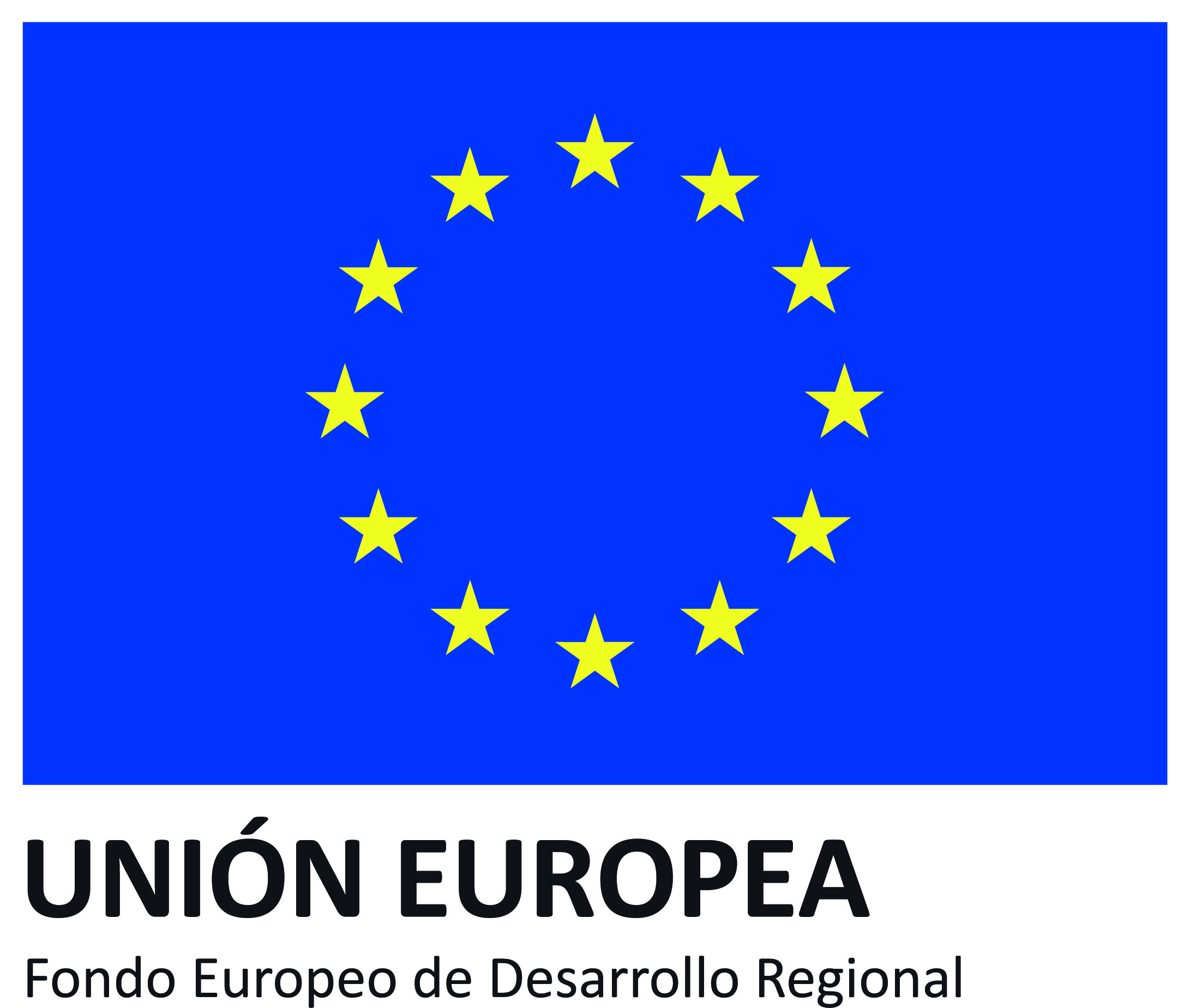Workshop I
(from 6 to 9 years old)
Workshop II
(from 9 to 12 years old)
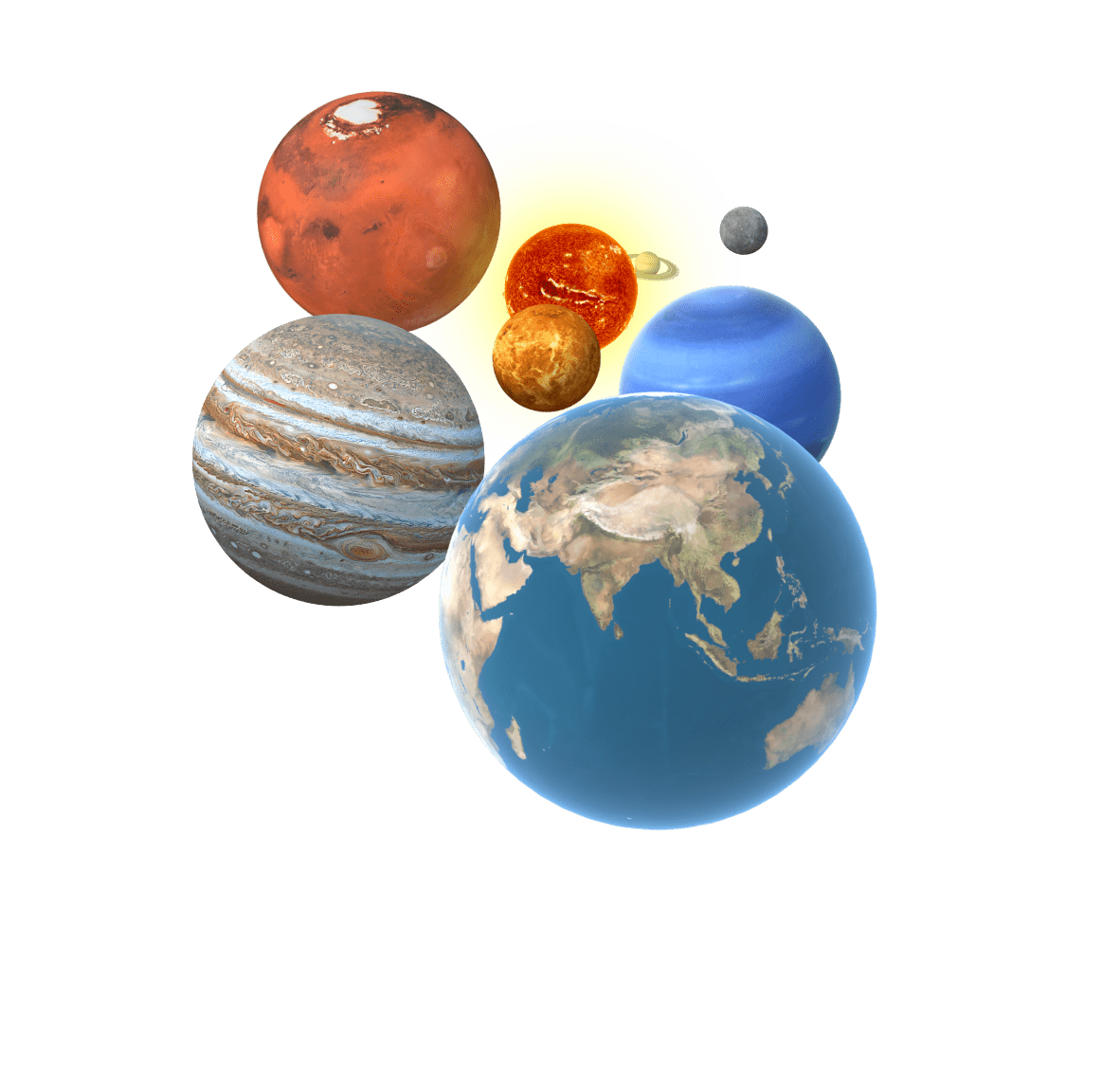
Workshop I
(from 6 to 9 years old)
Workshop II
(from 9 to 12 years old)

Workshop I
(from 6 to 9 years old)
Workshop II
(from 9 to 12 years old)

At this stage, children’s needs change, both academically and socioemotionally. The peer group begins to be a great reference and self-esteem, sense of justice and collaboration begin to gain much weight.
In our environments, group and individual learning is favored thanks to careful planning and carefully designed spaces. Learning comes through enthusiasm, curiosity and the rhythm of the children themselves to know, since at this stage they begin to question the why of things, accompanied by the Montessori Guide.
Learning to manage their time, to review their work and progress together with the Guide and to present in groups, makes them increasingly autonomous and self-disciplined. Montessori presentations alternate with individual and group projects, assemblies, workshops and outings.
The Montessori curriculum carried out in this way leads to the achievement of the Key Competencies necessary at the end of the Primary Education stage.
At this stage, children’s needs change, both academically and socioemotionally. The peer group begins to be a great reference and self-esteem, sense of justice and collaboration begin to gain much weight.
In our environments, group and individual learning is favored thanks to careful planning and carefully designed spaces. Learning comes through enthusiasm, curiosity and the rhythm of the children themselves to know, since at this stage they begin to question the why of things, accompanied by the Montessori Guide.
Learning to manage their time, to review their work and progress together with the Guide and to present in groups, makes them increasingly autonomous and self-disciplined. Montessori presentations alternate with individual and group projects, assemblies, workshops and outings.
The Montessori curriculum carried out in this way leads to the achievement of the Key Competencies necessary at the end of the Primary Education stage.
At this stage, children’s needs change, both academically and socioemotionally. The peer group begins to be a great reference and self-esteem, sense of justice and collaboration begin to gain much weight.
In our environments, group and individual learning is favored thanks to careful planning and carefully designed spaces. Learning comes through enthusiasm, curiosity and the rhythm of the children themselves to know, since at this stage they begin to question the why of things, accompanied by the Montessori Guide.
Learning to manage their time, to review their work and progress together with the Guide and to present in groups, makes them increasingly autonomous and self-disciplined. Montessori presentations alternate with individual and group projects, assemblies, workshops and outings.
The Montessori curriculum carried out in this way leads to the achievement of the Key Competencies necessary at the end of the Primary Education stage.
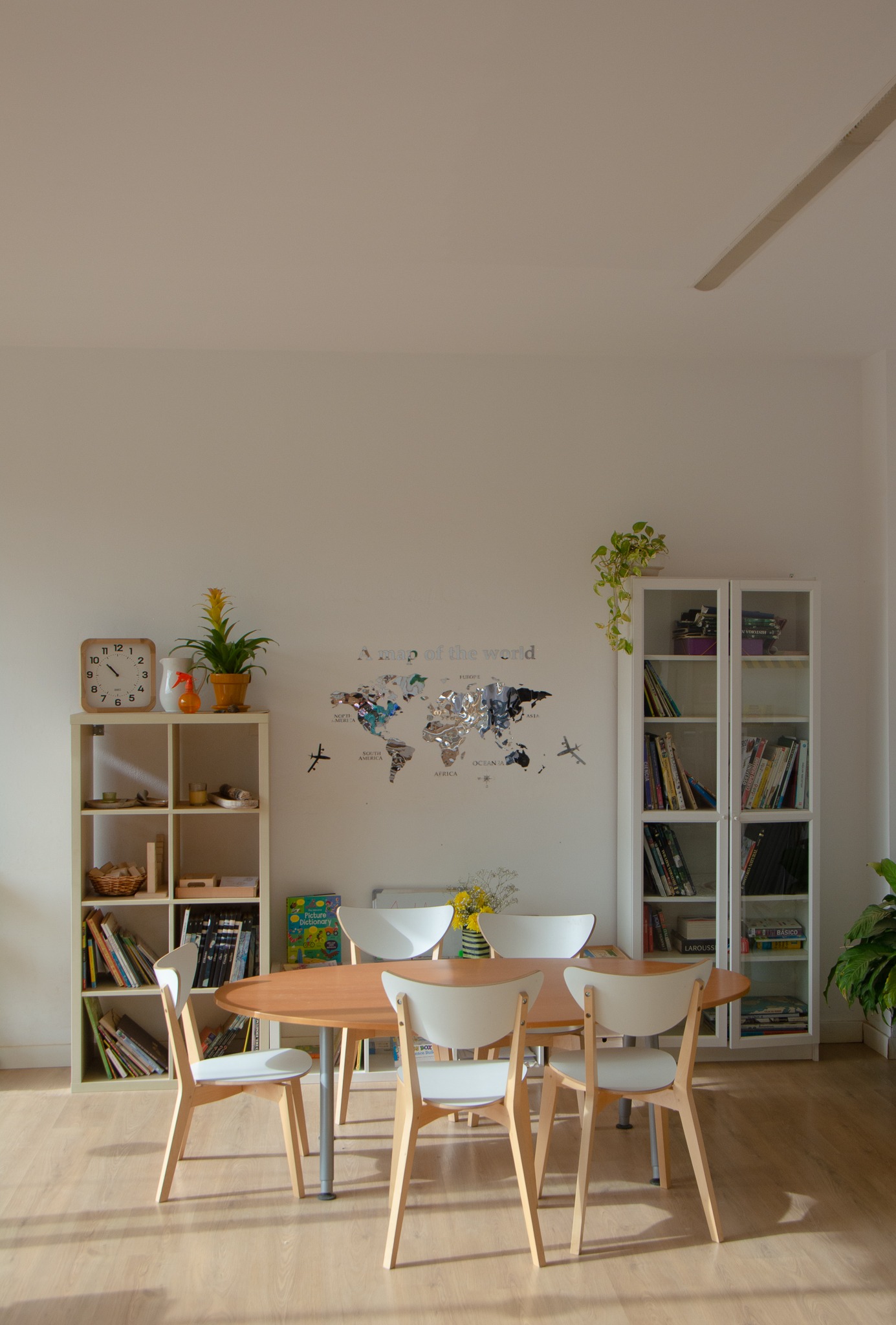
Critical spirit and a proactive attitude
At the pace at which our society is advancing, it is becoming increasingly evident that children must know how to differentiate and select resources from a wide variety, differentiate between real and false information, have a critical and proactive attitude, be creative and resolute. These demands are often not in line with the generalized educational system.
In our school, developing the skills to learn to learn is present on a daily basis. The research and exposure of autonomous projects has great weight. The scientific method is explained to them from the age of 6 so that they can gradually develop and broaden their understanding of the topics they want to know about, and they are encouraged to solve by themselves, to correct, to rethink questions, to reflect, to propose solutions in groups and to debate.
In this way, they practice reading and writing from the very beginning with a purpose adapted to their own interests and learn in a completely interdisciplinary way.
In addition, the Guide presents the different areas in order to combine what they want to learn (projects) with what they have to learn as they conquer new learning.
Multiage environments
In Elementary stage we find two environments, Workshop I for boys and girls between 6 and 9 years old, and Workshop II, for boys and girls between 9 and 12 years old.
Creating a society in the classroom is one of the added values of Montessori pedagogy to the education of children. They have the opportunity to put into practice in their daily lives what they have learned, both to help or learn from other classmates and to mediate or resolve conflicts.
This organization in heterogeneous groups makes that the competitiveness between children is completely left behind and collaboration and cooperation appear in a natural way.
In the environment there are very clear rules and limits that help the correct coexistence so that everyone feels valued, cared for and safe.
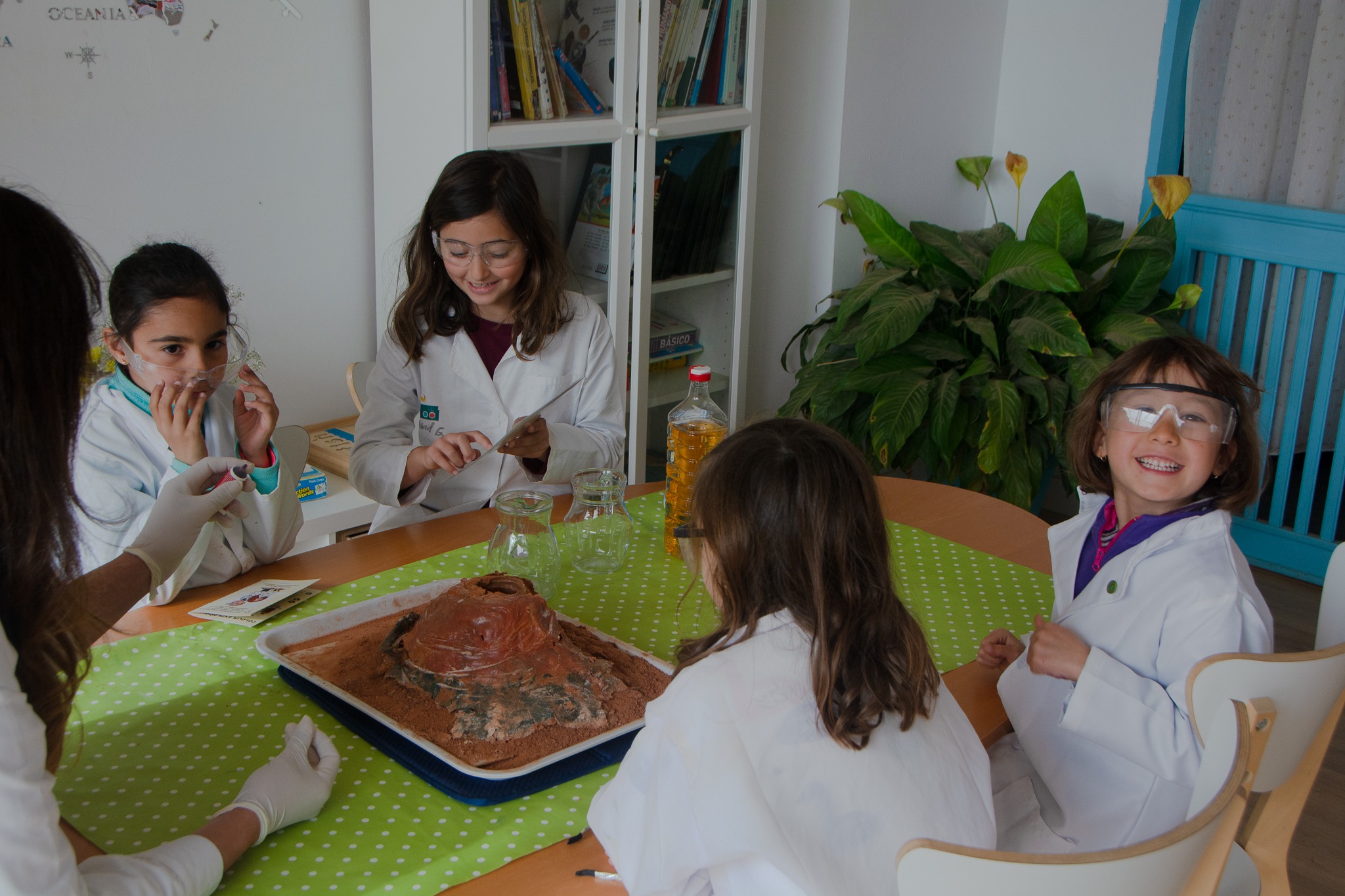

Critical spirit and a proactive attitude
At the pace at which our society is advancing, it is becoming increasingly evident that children must know how to differentiate and select resources from a wide variety, differentiate between real and false information, have a critical and proactive attitude, be creative and resolute. These demands are often not in line with the generalized educational system.
In our school, developing the skills to learn to learn is present on a daily basis. The research and exposure of autonomous projects has great weight. The scientific method is explained to them from the age of 6 so that they can gradually develop and broaden their understanding of the topics they want to know about, and they are encouraged to solve by themselves, to correct, to rethink questions, to reflect, to propose solutions in groups and to debate.
In this way, they practice reading and writing from the very beginning with a purpose adapted to their own interests and learn in a completely interdisciplinary way.
In addition, the Guide presents the different areas in order to combine what they want to learn (projects) with what they have to learn as they conquer new learning.
Multiage environments
In Elementary stage we find two environments, Workshop I for boys and girls between 6 and 9 years old, and Workshop II, for boys and girls between 9 and 12 years old.
Creating a society in the classroom is one of the added values of Montessori pedagogy to the education of children. They have the opportunity to put into practice in their daily lives what they have learned, both to help or learn from other classmates and to mediate or resolve conflicts.
This organization in heterogeneous groups makes that the competitiveness between children is completely left behind and collaboration and cooperation appear in a natural way.
In the environment there are very clear rules and limits that help the correct coexistence so that everyone feels valued, cared for and safe.


Critical spirit and a proactive attitude
At the pace at which our society is advancing, it is becoming increasingly evident that children must know how to differentiate and select resources from a wide variety, differentiate between real and false information, have a critical and proactive attitude, be creative and resolute. These demands are often not in line with the generalized educational system.
In our school, developing the skills to learn to learn is present on a daily basis. The research and exposure of autonomous projects has great weight. The scientific method is explained to them from the age of 6 so that they can gradually develop and broaden their understanding of the topics they want to know about, and they are encouraged to solve by themselves, to correct, to rethink questions, to reflect, to propose solutions in groups and to debate.
In this way, they practice reading and writing from the very beginning with a purpose adapted to their own interests and learn in a completely interdisciplinary way.
In addition, the Guide presents the different areas in order to combine what they want to learn (projects) with what they have to learn as they conquer new learning.
Multiage environments
In Elementary stage we find two environments, Workshop I for boys and girls between 6 and 9 years old, and Workshop II, for boys and girls between 9 and 12 years old.
Creating a society in the classroom is one of the added values of Montessori pedagogy to the education of children. They have the opportunity to put into practice in their daily lives what they have learned, both to help or learn from other classmates and to mediate or resolve conflicts.
This organization in heterogeneous groups makes that the competitiveness between children is completely left behind and collaboration and cooperation appear in a natural way.
In the environment there are very clear rules and limits that help the correct coexistence so that everyone feels valued, cared for and safe.

Learning areas and workshops
Maria Montessori developed and structured the knowledge that the children should know according to the abilities and needs that she detected in them, creating adapted materials, which in the Workshop (Primary) are included in various areas and workshops
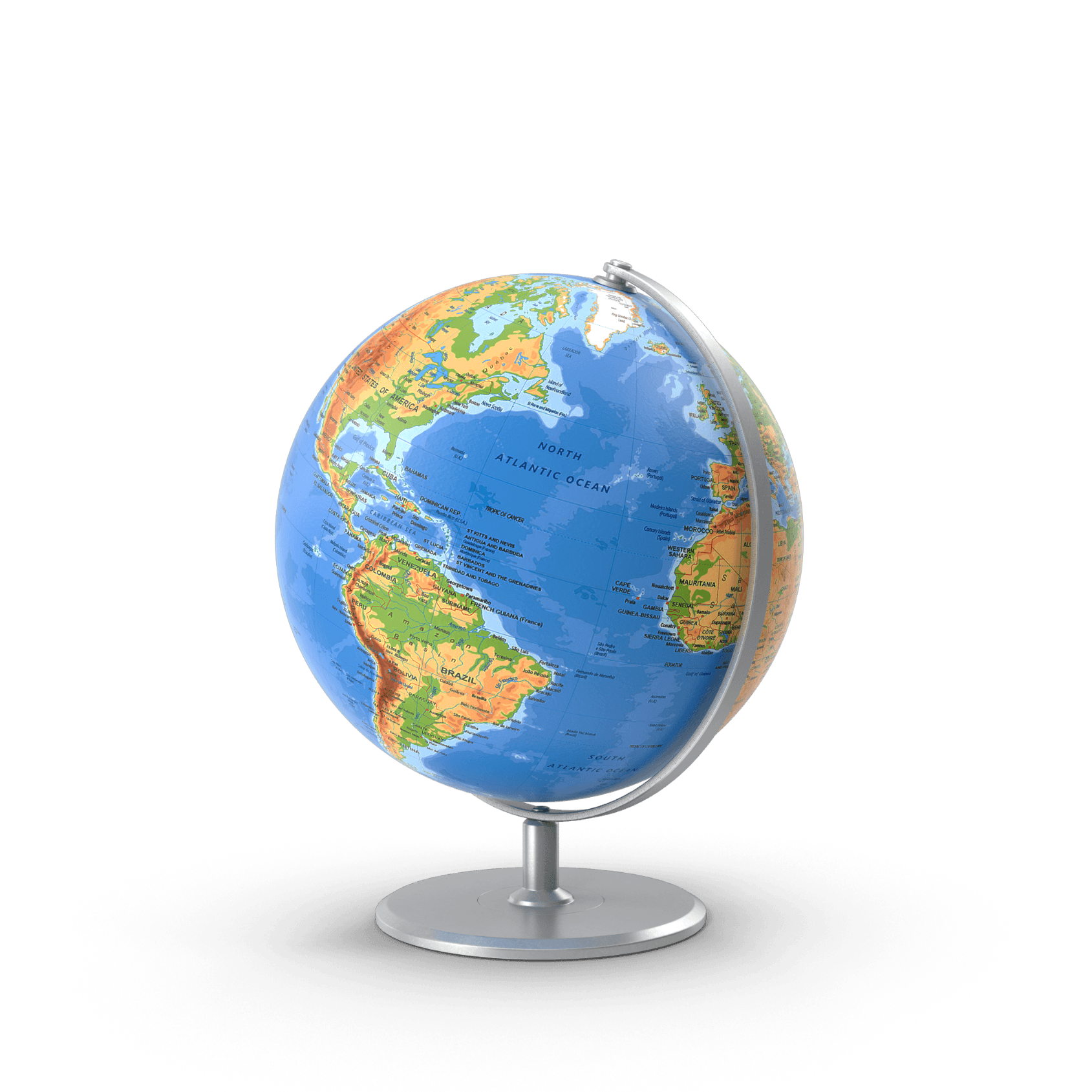
Mathematics
Dr. Montessori developed a multitude of materials to work on arithmetic concepts, which allow children to go from the more concrete to a greater abstraction, bringing them closer to complex knowledge with structure, associating concepts with quantities, categorizing, organizing. In short, it provided the possibility of making mathematics understandable to the children who are beginning to work with it at the Casa de Niños. In Elementary stage this is one of the areas most loved by our children, because through the various attractive materials, they are able to understand concepts that may seem complex at first.
In Geometry, we work on those aspects that allow us to identify and recognize different flat geometric shapes with volume, lines and angles. In general, children are helped to build structured mental images, organizing the world.
Geometry
Language
Through the work in the area of language, which in the first instance is carried out with manipulative materials, we help children to learn how language works and how it is structured. Initially, children begin to identify sounds, trace letters, form words, read words through their phonemes and build increasingly complex sentences, while they learn the functions and classification of words, syntax, information selection, the construction of messages, both oral and written, and spelling in general.
This term was coined by Maria Montessori to encompass those sciences that gave answers to the questions necessary to know the position of each child in the world and their contribution to it, without forgetting the background that has taken place on earth so that everything has come to the present time. Thus, the areas of History, Geography and Biology are included with Botany and Zoology, each of them with the necessary knowledge to know about how the Earth and our Solar System are structured and the phenomena that occur within it, how our world appeared, the civilizations that have lived in it and how plants and animals work and how they coexist in our ecosystem. We have to comment that all the areas that are worked on in the workshop are fully integrated and organized in the environment to be able to coexist among them, without dividing the knowledge.
Special mention should be made of the Five Great Lessons that Maria Montessori developed and that represent the opening of knowledge in Workshop I and II and that continue to deal with the various aspects that children should know in an integrated way. These lessons are really attractive and expected by the children in the Workshop, as they are full of experiments and beautiful real and scientific stories that attract children to science:
– First Great Lesson: History of the birth of the Universe.
– Second Great Lesson: The Life Line.
– Third Great Lesson: The History of the arrival of Human Beings.
– Fourth Great Lesson: The History of the Alphabet.
– Fifth Great Lesson: The History of Numbers.
Cosmic
education
Physical
education
In Elementary stage our students enjoy activities focused on improving their general physical condition, using play as a means to learn to develop basic physical skills, learn about the capabilities that each one has, explore motor skills, learn to develop body expression, work in group activities that involve movement in a specific way and enjoy new possibilities of sport. A new way of understanding education with multi-age groups that favors collaboration among numerous children, understanding the difference as a means for the admiration and improvement of each one, putting the value on the potential that each child has.
In EducoMontessori children have a unique opportunity to work on specific aspects through a motor development program that directly affects their academic progression, since we pay attention to the basic work involved in the maturation of the neurological system of children.
Neuro
development
Music
and art
The children have at their disposal numerous art activities that they can explore in the workshop environment. Acaréales, oil painting, clay, specialized books and specific workshops help them to express their artistic sense in a concrete way. With the weekly Music Workshop, they learn about choral singing, practice their tonal recognition skills and develop their musical sense through various games that allow them to develop their expression through this medium.
English is constantly present in our environments. Through daily work, children gain access to the necessary skills that will allow them to learn English, love it, feel a connection with this language and bring it closer to their immediate environment.
Linguistic
immersion program
in English
Nature
Workshop
The Nature Workshop has a direct connection with the work carried out in the Biology area, thus, specific activities in this area are carried out weekly in our outdoor vegetable garden, as well as indoors. Likewise, we receive workshops by experts who help us in specific tasks such as planting, harvesting, species identification and other aspects that are a plus in the work carried out in the aforementioned area.
In our school, initiating children in self-awareness and control of their own bodies through meditation is important, as it helps them to live in the present moment, to begin to eliminate the noise generated by intrusive thoughts and to calm their minds in moments of agitation, controlling their bodies in the same way.
Mindfulness
Emotional
management
The activities to identify, understand and know their feelings and emotions are actions that we carry out on a daily basis in our work with children, using it as a transversal axis of daily communication. Expressing emotions empathetically and understanding the emotions of others, are important learning to be able to work the other areas that make up a global education and aimed to be viable for the lives of children.
Learning areas and workshops
Maria Montessori developed and structured the knowledge that the children should know according to the abilities and needs that she detected in them, creating adapted materials, which in the Workshop (Primary) are included in various areas and workshops

Mathematics
Dr. Montessori developed a multitude of materials to work on arithmetic concepts, which allow children to go from the more concrete to a greater abstraction, bringing them closer to complex knowledge with structure, associating concepts with quantities, categorizing, organizing. In short, it provided the possibility of making mathematics understandable to the children who are beginning to work with it at the Casa de Niños. In Elementary stage this is one of the areas most loved by our children, because through the various attractive materials, they are able to understand concepts that may seem complex at first.
Language
Through the work in the area of language, which in the first instance is carried out with manipulative materials, we help children to learn how language works and how it is structured. Initially, children begin to identify sounds, trace letters, form words, read words through their phonemes and build increasingly complex sentences, while they learn the functions and classification of words, syntax, information selection, the construction of messages, both oral and written, and spelling in general.
Physical
education
In Elementary stage our students enjoy activities focused on improving their general physical condition, using play as a means to learn to develop basic physical skills, learn about the capabilities that each one has, explore motor skills, learn to develop body expression, work in group activities that involve movement in a specific way and enjoy new possibilities of sport. A new way of understanding education with multi-age groups that favors collaboration among numerous children, understanding the difference as a means for the admiration and improvement of each one, putting the value on the potential that each child has.
Music
and art
The children have at their disposal numerous art activities that they can explore in the workshop environment. Acaréales, oil painting, clay, specialized books and specific workshops help them to express their artistic sense in a concrete way. With the weekly Music Workshop, they learn about choral singing, practice their tonal recognition skills and develop their musical sense through various games that allow them to develop their expression through this medium.
Nature
Workshop
The Nature Workshop has a direct connection with the work carried out in the Biology area, thus, specific activities in this area are carried out weekly in our outdoor vegetable garden, as well as indoors. Likewise, we receive workshops by experts who help us in specific tasks such as planting, harvesting, species identification and other aspects that are a plus in the work carried out in the aforementioned area.
Emotional
management
The activities to identify, understand and know their feelings and emotions are actions that we carry out on a daily basis in our work with children, using it as a transversal axis of daily communication. Expressing emotions empathetically and understanding the emotions of others, are important learning to be able to work the other areas that make up a global education and aimed to be viable for the lives of children.
In Geometry, we work on those aspects that allow us to identify and recognize different flat geometric shapes with volume, lines and angles. In general, children are helped to build structured mental images, organizing the world.
Geometry
This term was coined by Maria Montessori to encompass those sciences that gave answers to the questions necessary to know the position of each child in the world and their contribution to it, without forgetting the background that has taken place on earth so that everything has come to the present time. Thus, the areas of History, Geography and Biology are included with Botany and Zoology, each of them with the necessary knowledge to know about how the Earth and our Solar System are structured and the phenomena that occur within it, how our world appeared, the civilizations that have lived in it and how plants and animals work and how they coexist in our ecosystem. We have to comment that all the areas that are worked on in the workshop are fully integrated and organized in the environment to be able to coexist among them, without dividing the knowledge.
Special mention should be made of the Five Great Lessons that Maria Montessori developed and that represent the opening of knowledge in Workshop I and II and that continue to deal with the various aspects that children should know in an integrated way. These lessons are really attractive and expected by the children in the Workshop, as they are full of experiments and beautiful real and scientific stories that attract children to science:
– First Great Lesson: History of the birth of the Universe.
– Second Great Lesson: The Life Line.
– Third Great Lesson: The History of the arrival of Human Beings.
– Fourth Great Lesson: The History of the Alphabet.
– Fifth Great Lesson: The History of Numbers.
Cosmic
education
In EducoMontessori children have a unique opportunity to work on specific aspects through a motor development program that directly affects their academic progression, since we pay attention to the basic work involved in the maturation of the neurological system of children.
Neuro
development
English is constantly present in our environments. Through daily work, children gain access to the necessary skills that will allow them to learn English, love it, feel a connection with this language and bring it closer to their immediate environment.
Linguistic
immersion program
in English
In our school, initiating children in self-awareness and control of their own bodies through meditation is important, as it helps them to live in the present moment, to begin to eliminate the noise generated by intrusive thoughts and to calm their minds in moments of agitation, controlling their bodies in the same way.
Mindfulness
Learning areas and workshops
Maria Montessori developed and structured the knowledge that the children should know according to the abilities and needs that she detected in them, creating adapted materials, which in the Workshop (Primary) are included in various areas and workshops:

Mathematics
Dr. Montessori developed a multitude of materials to work on arithmetic concepts, which allow children to go from the more concrete to a greater abstraction, bringing them closer to complex knowledge with structure, associating concepts with quantities, categorizing, organizing. In short, it provided the possibility of making mathematics understandable to the children who are beginning to work with it at the Casa de Niños. In Elementary stage this is one of the areas most loved by our children, because through the various attractive materials, they are able to understand concepts that may seem complex at first.
Geometry
In Geometry, we work on those aspects that allow us to identify and recognize different flat geometric shapes with volume, lines and angles. In general, children are helped to build structured mental images, organizing the world.
Language
Through the work in the area of language, which in the first instance is carried out with manipulative materials, we help children to learn how language works and how it is structured. Initially, children begin to identify sounds, trace letters, form words, read words through their phonemes and build increasingly complex sentences, while they learn the functions and classification of words, syntax, information selection, the construction of messages, both oral and written, and spelling in general.
Cosmic
education
This term was coined by Maria Montessori to encompass those sciences that gave answers to the questions necessary to know the position of each child in the world and their contribution to it, without forgetting the background that has taken place on earth so that everything has come to the present time. Thus, the areas of History, Geography and Biology are included with Botany and Zoology, each of them with the necessary knowledge to know about how the Earth and our Solar System are structured and the phenomena that occur within it, how our world appeared, the civilizations that have lived in it and how plants and animals work and how they coexist in our ecosystem. We have to comment that all the areas that are worked on in the workshop are fully integrated and organized in the environment to be able to coexist among them, without dividing the knowledge.
Special mention should be made of the Five Great Lessons that Maria Montessori developed and that represent the opening of knowledge in Workshop I and II and that continue to deal with the various aspects that children should know in an integrated way. These lessons are really attractive and expected by the children in the Workshop, as they are full of experiments and beautiful real and scientific stories that attract children to science:
– First Great Lesson: History of the birth of the Universe.
– Second Great Lesson: The Life Line.
– Third Great Lesson: The History of the arrival of Human Beings.
– Fourth Great Lesson: The History of the Alphabet.
– Fifth Great Lesson: The History of Numbers
Physical
education
In Elementary stage our students enjoy activities focused on improving their general physical condition, using play as a means to learn to develop basic physical skills, learn about the capabilities that each one has, explore motor skills, learn to develop body expression, work in group activities that involve movement in a specific way and enjoy new possibilities of sport. A new way of understanding education with multi-age groups that favors collaboration among numerous children, understanding the difference as a means for the admiration and improvement of each one, putting the value on the potential that each child has.
Neuro
development
In EducoMontessori children have a unique opportunity to work on specific aspects through a motor development program that directly affects their academic progression, since we pay attention to the basic work involved in the maturation of the neurological system of children.
Music
and art
The children have at their disposal numerous art activities that they can explore in the workshop environment. Acaréales, oil painting, clay, specialized books and specific workshops help them to express their artistic sense in a concrete way. With the weekly Music Workshop, they learn about choral singing, practice their tonal recognition skills and develop their musical sense through various games that allow them to develop their expression through this medium.
Nature
workshop
The Nature Workshop has a direct connection with the work carried out in the Biology area, thus, specific activities in this area are carried out weekly in our outdoor vegetable garden, as well as indoors. Likewise, we receive workshops by experts who help us in specific tasks such as planting, harvesting, species identification and other aspects that are a plus in the work carried out in the aforementioned area.
Mindfulness
In our school, initiating children in self-awareness and control of their own bodies through meditation is important, as it helps them to live in the present moment, to begin to eliminate the noise generated by intrusive thoughts and to calm their minds in moments of agitation, controlling their bodies in the same way.
Emotional
management
The activities to identify, understand and know their feelings and emotions are actions that we carry out on a daily basis in our work with children, using it as a transversal axis of daily communication. Expressing emotions empathetically and understanding the emotions of others, are important learning to be able to work the other areas that make up a global education and aimed to be viable for the lives of children.
Linguistic
immersion program
in English
English is constantly present in our environments. Through daily work, children gain access to the necessary skills that will allow them to learn English, love it, feel a connection with this language and bring it closer to their immediate environment.
Touch the icons
This is Montessori education! It offers primary school children a procedural, integral, holistic and scientific education. It provides an education for life, taking into account what we already know, thanks to research and results, as necessary for quality and lasting learning: emotional attention, including movement in educational processes, prioritizing practice and learning by doing, respecting individuality and attention to diversity, and respecting and encouraging different abilities and multiple intelligences. All this allows children to achieve effective and lasting learning, capable of creating men and women of peace, solidarity and success for the future.
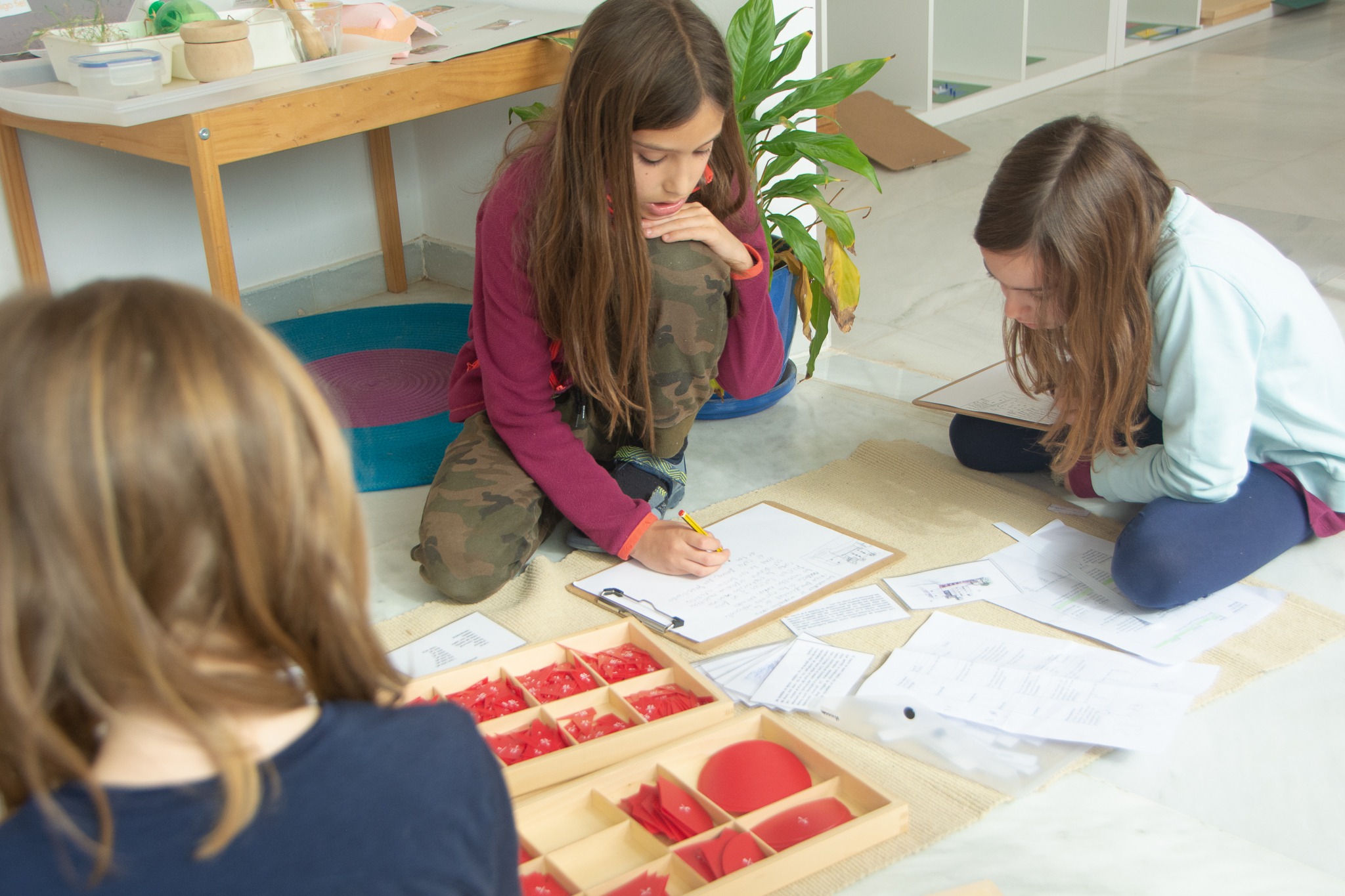
This is Montessori education! It offers primary school children a procedural, integral, holistic and scientific education. It provides an education for life, taking into account what we already know, thanks to research and results, as necessary for quality and lasting learning: emotional attention, including movement in educational processes, prioritizing practice and learning by doing, respecting individuality and attention to diversity, and respecting and encouraging different abilities and multiple intelligences. All this allows children to achieve effective and lasting learning, capable of creating men and women of peace, solidarity and success for the future.

This is Montessori education! It offers primary school children a procedural, integral, holistic and scientific education. It provides an education for life, taking into account what we already know, thanks to research and results, as necessary for quality and lasting learning: emotional attention, including movement in educational processes, prioritizing practice and learning by doing, respecting individuality and attention to diversity, and respecting and encouraging different abilities and multiple intelligences. All this allows children to achieve effective and lasting learning, capable of creating men and women of peace, solidarity and success for the future.

